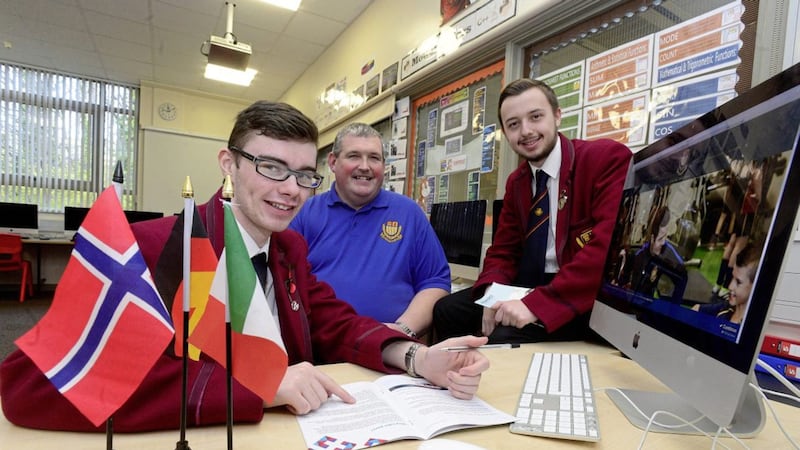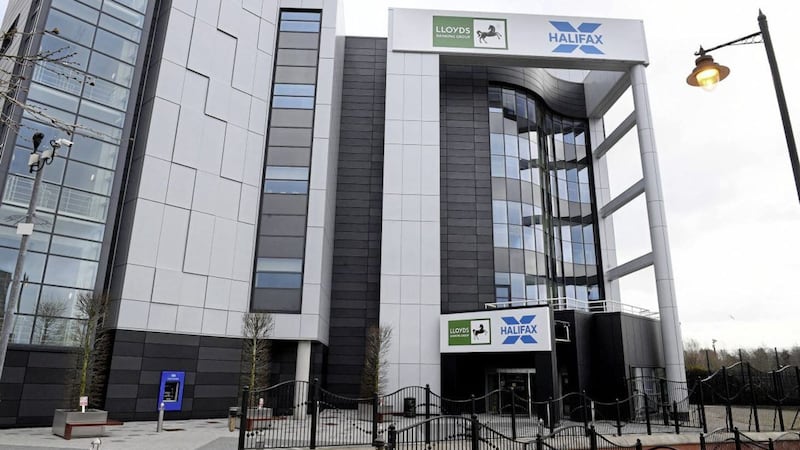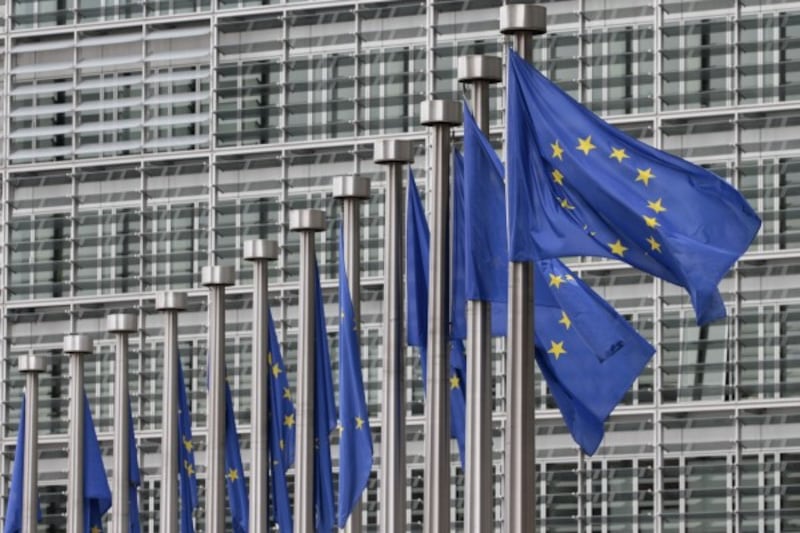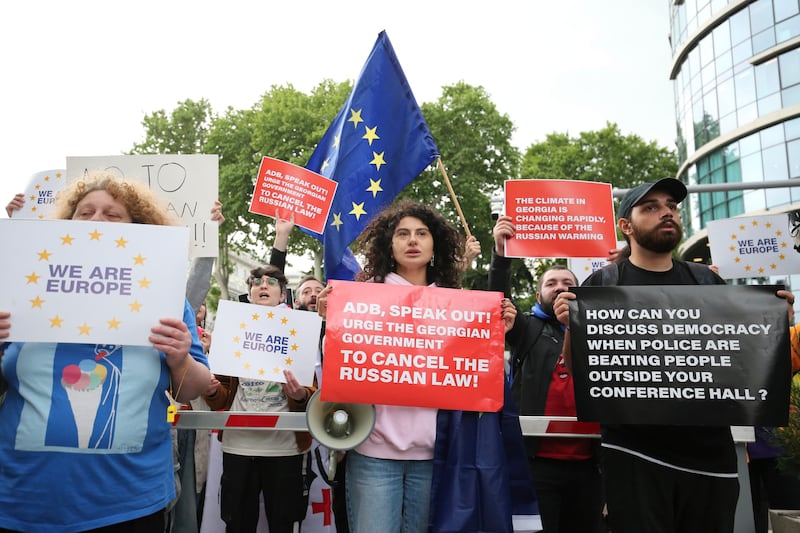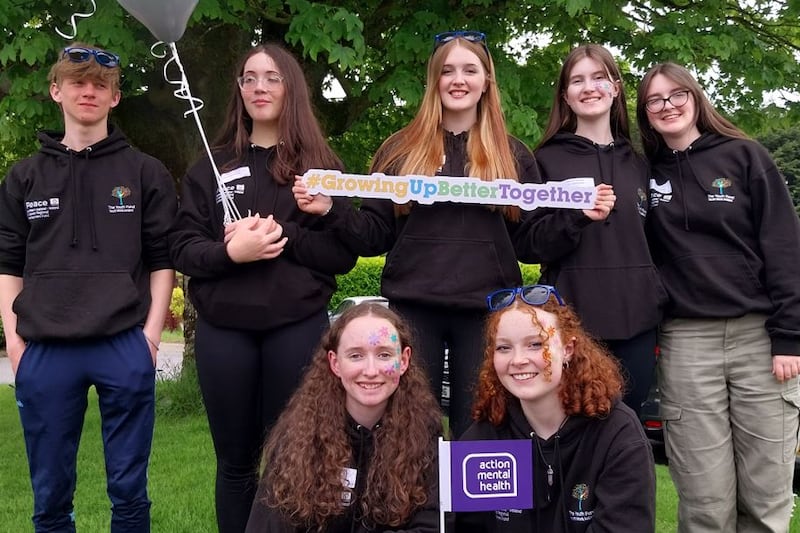STUDENT and youth work organisations in Northern Ireland have benefitted to the tune of nearly £25 million in the last three years under the Erasmus European funding programme, according to new figures.
The €28m (£24.8m)has been granted to 215 projects led by organisations in the higher and adult education, schools, youth, and vocational education and training sectors, with more than 40 local schools being involved.
But despite being one of the outstanding successes of the EU, fears linger that the programme may yet be scuppered in the post-Brexit era.
The Erasmus exchange programme, which has helped more than 200,000 UK students since it started in 1987, will continue until at least the end of 2020, prime minister Theresa May confirmed earlier this month.
But the government has already dodged opportunities to commit to the programme beyond that, and whether it continues in the longer term is likely to be low down any future Brexit negotiating agenda.
Erasmus+ sees students study in another European country for between three and 12 months as part of their degree.
Figures released by the British Council and Ecorys UK (the national agency delivering the scheme in the UK) confirmed that Northern Ireland has been awarded €28m in Erasmus+ EU funding since 2014.
Of that, €9.2m has gone to universities and €9.6m to organisations working in vocational education and training.
Some €3.8m has been awarded to schools in the north, €3.2m to youth work organisations and a further €1.8m to organisations working in adult education.
From the funding received until the end of last year, 7,837 people were estimated to have taken part from Northern Ireland, with most of them being students and young people.
Numbers of school staff approved to teach, train or job shadow nearly doubled from 22 to 49 in that period, and from 2018, more schools can benefit from an increase in funding to support school exchanges of pupils and staff.
One school to benefit from funding was Belfast Boys’ Model School in west Belfast, one of the north’s most deprived areas.
It partnered with Germany, Italy and Norway, and aimed through their project - Labour Integration in Europe - to build more qualified and confident future job-seekers, by improving the pupils’ employability and career perspectives.
The project began in 2016 and since then pupils from the school have travelled to the co-ordinating school in Germany, where they visited engineering sites, the Mercedes Factory and an electronic company. They also welcomed their fellow pupils to Belfast, where they visited companies including Coca Cola.
Ian Patterson, head of learning technology at Belfast Boys’ Model, said: “This project has opened our pupils’ eyes to just what’s possible. Before many of them had never travelled outside the UK, let alone considered working in another country.
“These pupils are from the Shankill and Sandy Row and have always been very inward looking, but now they have raised their own expectations with many thinking of studying further afield and not just as Queen’s or Ulster University - with some considering apprenticeships or even studying or working across Europe.”
Jonathan Stewart, deputy director of the British Council in Northern Ireland, said: “Our international partnerships are at the heart of everything we do and initiatives such as Erasmus+ enable students to understand issues of worldwide importance gain a sense of social responsibility and develop the skills they need to succeed in a global workplace.
“So we're delighted that in 2018, with the introduction of Erasmus+ School Exchange Partnerships, more schools than ever will be able to use the new funding to support both pupil and teacher exchanges between schools form different European countries.
"In view of the EU referendum, cultural connections between the UK and other European countries are as important as ever. We will continue to work in partnership with other European countries and international institutions to create opportunities, build connections and engender trust."
The number of Northern Ireland’s vocational education and training staff and students successfully applying to train in Europe through Erasmus+ more than doubled from 368 to 915 between 2015 and 2016, with institutions including Southern Regional College and Northern Regional College benefitting from funding.
Jane Racz, Erasmus+ UK national agency director said: “The funding available to the UK in 2018 is at its highest to date at around €170m, and we are particularly keen for schools in Northern Ireland to apply for the new school exchanges to benefit from links with schools across Europe.”
